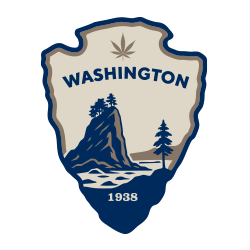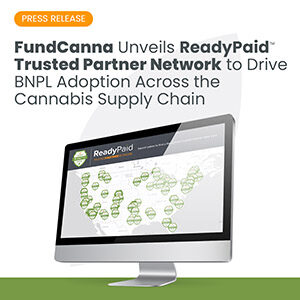As one of the first states to legalize adult-use cannabis in 2012, Washington’s market has had over a decade to evolve—and it shows.
From regulation to retail, the Evergreen State has built a well-established, if complex, framework for cannabis commerce.
Now, as operators face a crowded market and outdated reporting systems, the focus is shifting from first-mover advantage to long-term sustainability and smarter growth.
Washington’s Cannabis Market:
A Pioneer Still Evolving
Though the market is mature, growth remains steady particularly in value-added categories like edibles, concentrates, and solventless products. Washington’s tight regulatory controls and competitive pricing have made it a proving ground for experienced operators looking to expand their offerings and efficiency.
Washington was one of the first two states to legalize adult-use cannabis in 2012, with retail sales beginning in 2014. Now more than a decade in, the state continues to generate impressive numbers, with 2024 cannabis sales exceeding $1.2 billion, and more than 1,000 licensed retail outlets across the state. While specific projections for the year aren’t detailed, the pattern of decline suggests sales in the state may continue to decrease or stabilize at a lower level.
Challenges to the Market
Oversupply and data limitations present Washington cannabis businesses with persistent challenges.
In 2023 and 2024, cannabis production was estimated to be two or three times higher than retail sales levels, leading to oversaturation with supply more than twice market demand. This substantial oversupply has contributed to falling wholesale prices and increasing financial burdens on producers, especially smaller operations. The imbalance between supply and demand underscores the need for data collection and regulatory measures to better align production with actual market needs.
Washington State is grappling with a serious data quality and tracking problem impacting the entire cannabis industry. The Cannabis Central Reporting System (CCRS) is the homegrown system Washington regulators implemented after scrapping the BioTrack platform. The CCRS tracking system relies on manual uploads, which results in inconsistent use, duplicate entries, and formatting problems creating a systemic mismatch - the amount of weed reported as produced doesn’t reliably match what’s being reported as sold or destroyed.
Misaligned and inaccurate data makes it a struggle to reconcile reported production with retail sales and product destruction, which raises concern regarding both oversupply and diversion of cannabis to the illicit market. The lack of real-time, standardized inventory and sales data make it difficult to monitor market trends, enforce compliance, and plan policy effectively. Washington’s data issues ultimately hinder transparency, weaken regulatory oversight, and distort the true picture of the state’s cannabis economy.
A Mature Market with Room to Scale
While Washington’s early growth has plateaued, new opportunities continue to emerge. From cross-border tourism in cities like Vancouver and Spokane to delivery and e-commerce enhancements, the state is innovating within a regulated framework. In 2024, per-capita cannabis consumption in Washington remained among the highest in the nation, with consumers spending over $160 annually per resident on legal cannabis.
Despite steady sales, Washington operators can drive growth by diversifying offerings, optimizing operations, and tapping into new revenue streams. Expanding into high-growth categories like infused beverages, fast-acting edibles, and cannabis concentrates can boost margins and attract new customers, while strong branding and consumer experiences help build loyalty in a growing customer-base.
Growth-minded operators leverage automation to streamline daily operations and improve efficiency, look to product innovation projects to open new opportunities into wholesale, white-label, or collaborative opportunities, and invest in technology upgrades, branded experiences, and vertically integrated models to gain market share.
Smart strategies backed by reliable financing, businesses can capitalize on this next phase of growth.
Regulatory Stability and Experience
Washington’s Liquor and Cannabis Board (LCB) has over a decade of experience managing the adult-use market. The regulatory system is among the most developed in the country, with clear processes for license renewal, compliance inspections, and product tracking. While no new retail licenses have been issued in recent years, mergers, acquisitions, and license transfers remain common.
Social equity initiatives are evolving - Washington launched a Cannabis Social Equity Program in 2023, offering grants and prioritized licensing for communities disproportionately impacted by past criminalization. Although slower to roll out than in some newer markets, this reflects a growing recognition of the need for inclusivity.
Informed Consumers Drive Demand and Innovation
Washington cannabis buyers are educated, loyal, and sophisticated in their consumption behavior. While hard data isn't available publicly, figures from early 2024 provide some insight into market distribution and preferences.
The average customer in Washington expects lab testing, potency transparency, and craft quality—all of which present both challenges and opportunities for operators seeking differentiation.
With higher consumer sophistication comes openness to new ideas like alternative consumption methods for already popular concentrates (ie., rso in tincture or tab form, etc), infused beverages, and fast-acting edibles. While price sensitivity remains high in Washington’s competitive landscape, premium and niche products (e.g., solventless, rosin, live resin) continue to carve out profitable market segments.
Economic Contribution and Community Benefit
Cannabis is a pillar of Washington’s economy. In 2024 alone, cannabis tax revenue topped $515 million, with funds directed toward healthcare, education, and substance use prevention. Washington imposes a 37% excise tax, one of the highest in the country, making financial efficiency critical for operator survival and success.
Retail cannabis also supports over 11,000 jobs statewide, with ripple effects in ancillary economic development in real estate, logistics, security, and professional services.
Risks and Rewards in Washington’s Landscape
Despite its longevity, Washington’s cannabis market still presents challenges: tight margins, price compression, limited license expansion, and intense retail competition. However, for seasoned operators with the right capital strategy and business model, Washington remains one of the most stable and well-regulated markets in the country. Staying nimble, investing in brand equity, and accessing strategic financing are the keys to thriving in this environment.
FundCanna supports cannabis operators across every industry vertical including hundreds of retail, cultivation, and processing businesses navigating the complexities of today’s cannabis market. Whether you’re scaling a Tier 3 farm in Yakima or expanding your retail footprint in Tacoma, FundCanna can help you move faster, smarter, and stronger.
How FundCanna Helps Operators Grow
Washington’s cannabis industry is fiercely competitive.
Operators face narrow margins, rising compliance costs, and a saturated retail landscape. That means staying ahead requires more than strong product—it requires access to the right capital.
Traditional lenders often hesitate to support cannabis ventures, leading businesses to seek specialized funding solutions for the cannabis industry. We have funded nearly $200 million for over 600 clients across the nation and have a track record of helping businesses grow revenue by 60% or more.
For cannabis operators in Washington, keeping an eye out for emergent opportunities is crucial. Pairing market knowledge with timely access to capital makes all the difference when growth knocks.
FundCanna provides flexible working capital, equipment financing, and inventory funding solutions tailored to your business goals. We’re here to help you seize the opportunity—sustainably and strategically.
FundCanna supports cannabis operators in 43 states—including Washington—offering financial tools designed specifically for cannabis industry operators. With strategic financial support from FundCanna, cannabis operators can scale, compete, and thrive in this expanding market.
Need capital to grow In Washington State? Let’s talk. Contact FundCanna 1-844-420-3536
We Fund, You Grow!
Get the working capital you need. Fast.
Approvals in as little as 24 hours
More From Our Blog
Follow Us
Explore
info@fundcanna.com















